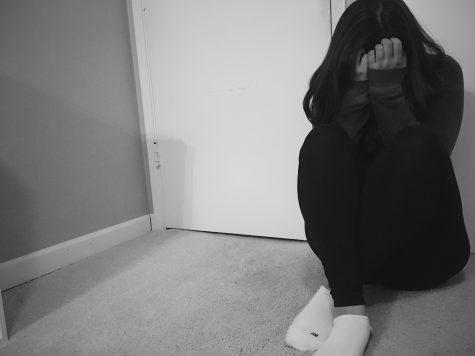
What if I told you that there is an invisible, immortal, and deadly killer on the loose? Its name is emotional abuse.
Most people experience some form of emotional abuse in their life, usually starting in their teen years, known as bullying.
However, bullies are not always obvious. Some work in manipulative and sneaky ways making it harder to see, such as in friendships and romantic relationships.
According to dictionary.com, abuse is defined as “bad or improper treatment.” It is also defined as the act of holding power over a subject such as a person and using it in a manipulative way or bullying.
Identifying abuse is harder to see when it comes from a friend or significant other because emotions fog our judgment and camouflage bullying as people trying to be “helpful.”
Emotional abuse is more common in romantic and friendly relationships than between enemies.
Unlike physical and sexual abuse, emotional abuse rarely leaves physical evidence. Therefore, unless there are eyewitnesses or text records, it is nearly impossible to prove in court.
Emotional abuse isolates many young adults, silencing their voices and creating the idea that it is alright abuse others. This negative impact, in turn, affects the next generation.
Springtide, a nonprofit organization for women and children facing violence, says more women experience emotional abuse from male partners than vice-versa.
This phenomenon is seen daily in a high schooler’s life but is often ignored or misunderstood. This holds many teenagers’ voices hostage as they feel like no one will listen.
Students Offering Support (SOS) ambassador and sophomore Aimee Kanadjian said, “There was this one guy who manipulated me to believe that I was a pathological liar. If I wasn’t on his good side, I was everything he hated; if I was on his good side, he wanted to be with me forever. There was no in between … he convinced me that no one else would love and trust me like he did. And he tried to do a lot of things to make me stay.”
.
Abuse in relationships, especially emotional, is an increasing epidemic in the dating scene.
Loveisrespect.org, another nonprofit organization bringing awareness to abuse in relationships, said, “one in three adolescents in the United States is a victim of physical, sexual, emotional, or verbal abuse from a dating partner.”
Another problem added to the mix is social media. Sites like Instagram, Snapchat, and Facebook allow us to show the parts of our life we want people to see.
However, it also provides the privilege of hiding the bad parts of your life, including abusive relationships. What is seen online as a “loving relationship” might actually be an emotionally exploitative situation hiding behind an illusion.
Aaron Ben-Zeev, a professor of philosophy at the University of Haifa said, “Lovers are often blind to the beloved’s negative traits and tend to create an idealized image of the beloved. We often love the idealized object rather than the real one.”
This also leads to generations with fairy-tale ideals of romance causing dissatisfaction making them more likely to put up with abuse.
According to Rosalie O’Neale, senior advisor of Australia’s communications and media authority division, 45 percent of eight to 11-year-old children use social media.
This not only exposes them to relationships but also other explicit information, which can handicap a child’s emotional health and development.
Often mistaken as something positive, emotionally abusive friendships are one of the most dangerous forms of bullying because it is thought that they are only trying to be a good friend.
Both Tatum McGuffin and Aimee Kanadjian, members of SOS, have experienced emotionally abusive friendships and the struggle to accept it.
McGuffin said, “I experienced emotional abuse throughout middle school, but I wasn’t able to admit it to anyone especially myself that I was emotionally abused.”
Unlike many others, both McGuffin and Kanadjian had supportive people in their lives from which they were able to seek support and sympathy from.
Some signs of emotional abuse according to Shannon McFarlin, a talk space therapist are being cautious in order to keep the other happy, isolating yourself from family or friends, mood swings, emotional instability, and controlling or intimidating behavior.
Anna Marie Medina, professor of child psychology at Gonzaga University suggests, “Even if you know what would work better for someone, outright telling them does not seem to change behavior. A more effective approach is to approach the matter with curiosity in the hopes that they will begin thinking ‘maybe I have better options.’”
Emotional abuse can’t be fixed without the support of others, and victims are waiting for someone to hear their voices.










